This article is dedicated to Mark, one of our subscribers (thank you!), who requested a piece on River Phoenix -Editor.
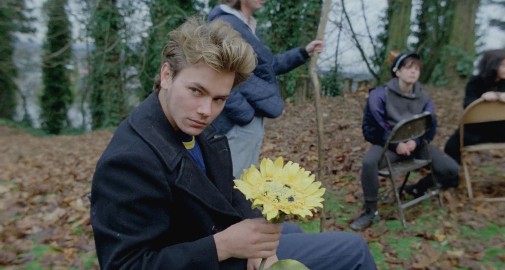
It's difficult to write, it's difficult to think, about River Phoenix without the tragedy of his premature death casting a dark shadow over all other considerations. His acting is often talked about in terms of wasted potential, another facet of the same mythos that James Dean inhabits in the public consciousness. Sure, his film work is important, but only as far as it adds to the narrative of a flame that burned too bright and died out too soon. That can be a blessing to one's legacy, a promise of cultural immortality. However, it's also a curse that makes a young actor's amazing career into a footnote of a Hollywood tale of doom and gloom. River Phoenix was and is more than the protagonist of a real-life story about dying young. He's a great actor, one whose performances still have the power to amaze and impress, to enlighten and hurt.
This piece is about such a feat of acting, one that takes my breath away every time I gaze upon its magnificence. It's about River Phoenix in Gus van Sant's My Own Private Idaho…
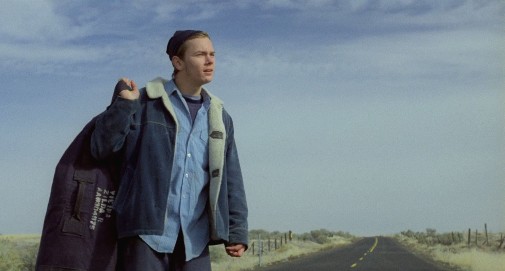
This classic of early 90s New Queer Cinema is a hybrid of form and text whose wild experimentations can be hard to stomach. Working from two different screenplays, a short story and the ghost of Shakespeare's Henriad, van Sant tells the story of two male hustlers living in contemporaneous America. Phoenix is Mike Waters, a narcoleptic teenager born of oedipal parentage into the kind of squalor that seldomly shows its face on the silver screen. Like many youths in similar destitution, he sells his body as subsistence, walking through the urban darkness in search of some interested client that wants to enjoy him, if only for a night. It's an existence of constant helplessness and hunger, be it for food or the sustenance of affection that one cannot buy.
Still, when we first meet him, Mike's not in the city. We meet him on a road, alone, a speck of life in a landscape of desert dirt slashed by the highway. Like he often does, he coughs and fidgets about, a beautiful icon of consumptive frailty with wispy blond sideburns and a pasty complexion. Whatever unstable sense of peace the deserted tableau might suggest, it's quickly broken when Mike seizes, his body trembling. Muscles tense and face scrunched, it seems as if the boy might explode from accumulated tension like a rope wound up too tight or a bomb ready to go off. However, Mike doesn't explode. He implodes, collapsing unto himself and falling to the ground, even more helpless than before. Then, he orgasms.
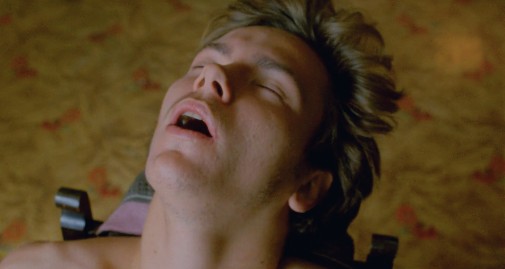
The sexual climax is from another scene altogether, a meeting with a generous client who likes to blow the young hustler. Van Sant's transitions in My Own Private Idaho are never gentle, even if the way he looks at his characters might be. Like a shattered mirror, this indie flick is a storm of jagged edges ready to draw blood, full of weird stylistic inventions that are as abrasive as they are dazzling. Such a directorial approach could result in an alienating disaster, but the project's actors hold it together. Phoenix, in particular, is both anchor and glue, grounding the experimentation in visceral humanity and joining its disparate faces in a coherently incoherent union.
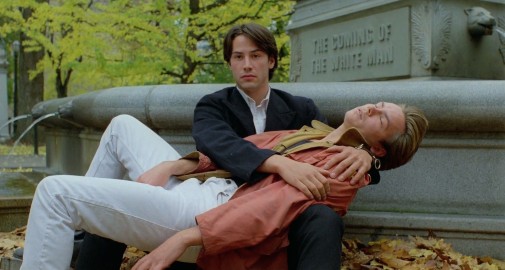
He's not alone, not in that regard. My Own Private Idaho might be a story philtered through the perspective of Mike, but it's a two-lead movie. Keanu Reeves is the other hero, a modernized Henry V by the name of Scott Favor, now the prince of Portland, son of an American mayor instead of an English king. He's Mike's best friend, his protector, and companion. He's also the focus of his unrequited love, a desire bound to end in heartbreak for the man to whom poverty is a way of life and not a distraction. You see, for Scott, misery is a hobby to indulge in before the advent of adulthood. Mike's not stupid, he knows his feelings are not mirrored by the insouciant Scott, and that their worlds aren't the same. Still, he longs for the other man. We can't control who we want. Nobody can.
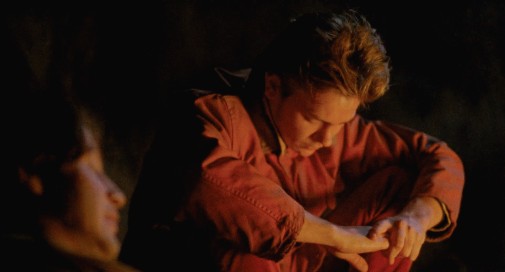
That attraction is at the center of the movie's most famous and best scene, a campfire confession made in the embrace of a lonesome desert night. There, shrouded in apparent isolation, Mike opens up to his friend, slashes open his own heart with honest words, and lets Scott see the bloody mess inside. He speaks of love that needs no payment, of a need that the character seems unable to fully put into words but that the audience can clearly understand. He never looks at Scott, he shrinks, limbs hugging each other in a desperate attempt at shielding himself from some cruel aggression that might come. Shielding himself from the cold light of the fire. At that moment, River Phoenix's Mike is a scared animal covering his soft belly and hoping that pain isn't on its way. Physically there's no issue, but, emotionally, Mike's in for a world of pain.
Art can sometimes articulate what our mind cannot, reflecting and revealing who we are to ourselves. When I first saw Phoenix play that campfire scene, many years ago, it was like a lightbulb going off in my head. There it was, that need for someone to see me, to love me and touch me, to make me feel normal. A need I didn't comprehend but this film did. The fear of rejection was also there, the fear that the loneliness I felt was permanent. River Phoenix's take on Mike is one of the most honest representations of that need and of that terror I've ever seen on film, be it his desultory odyssey-like pursuit of an absent mother or that amorous want confessed by the campfire.
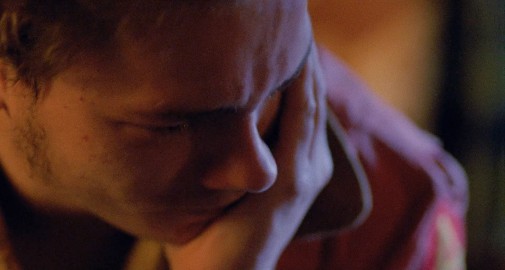
Often, throughout My Own Private Idaho, Van Sant brings the camera close to Phoenix's face and the actor always turns his eyes downward, keeping his gaze private from the audience. I find myself thankful for it since I fear what I might have felt if he had allowed me to look directly at Mike's pain crystalized in close-up. It might have been too much. After all, the campfire scene is almost too much already. Phoenix looks away so we don't have to. I'm also thankful for the glimpses of childlike innocence he allows to show through his epic painting of American misery. It's the glee of a bubble bath, the adolescent joy of a well-executed prank, the rebellious smile during the funeral of a vagabond Falstaff, the playful swats when Scott pulls on his chest hair. Such details allow Mike to feel human, to feel real, painfully so at times.
Thank you, River, for this lost boy that let me understand myself a bit better. Thank you, for everything.
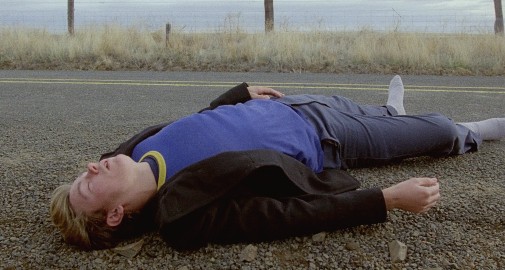
My Own Private Idaho is available to stream on the Criterion Channel. You can also rent it from Amazon, Apple iTunes, Google Play, Youtube, and others.